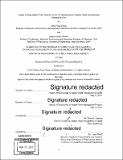| dc.contributor.advisor | Bruce C. Arntzen. | en_US |
| dc.contributor.author | Chang, Meng Ying, M. Eng. Massachusetts Institute of Technology./ | en_US |
| dc.contributor.author | Mohan, Raghavendran | en_US |
| dc.contributor.other | Massachusetts Institute of Technology. Supply Chain Management Program. | en_US |
| dc.coverage.spatial | n-us--- | en_US |
| dc.date.accessioned | 2017-12-20T18:15:41Z | |
| dc.date.available | 2017-12-20T18:15:41Z | |
| dc.date.copyright | 2017 | en_US |
| dc.date.issued | 2017 | en_US |
| dc.identifier.uri | http://hdl.handle.net/1721.1/112875 | |
| dc.description | Thesis: M. Eng. in Supply Chain Management, Massachusetts Institute of Technology, Supply Chain Management Program, 2017. | en_US |
| dc.description | Cataloged from PDF version of thesis. | en_US |
| dc.description | Includes bibliographical references (pages 46-47). | en_US |
| dc.description.abstract | Drug counterfeiting is one of the major issues in the pharmaceutical industry across the world. These products could cause damages from ineffective treatments to death of patients. In order to fight against counterfeit drugs, the US government introduced Drug Supply Chain Security Act (DSCSA) mandating that all prescription drugs should be serialized. In addition, it mandates all pharmaceutical companies in the U.S. to provide tracking documents in response to a tracing request from FDA. While the act aims to improve drug security across the pharmaceutical industry, it poses a huge impact across the supply chain on both physical flow and information flow. This research evaluates the supply chain impact at an industry level. In this thesis, we evaluate the supply chain impact of Matryoshka model and Unit level model supported by a decentralized information flow. The thesis then evaluates the supply chain impact from three aspects, operational cost, IT infrastructure cost and capital investment. We reference Nabiyeva and Wu's research on centralized information flow model to conduct an exhaustive supply chain impact evaluation across the centralized model and the decentralized model. We conclude that among all these scenarios, unit level model under centralized information flow design bears the highest cost as it requires higher IT investment. On the other hand, the matryoshka model under decentralized information flow has a least supply chain impact from the cost perspective with low IT investment. | en_US |
| dc.description.statementofresponsibility | by Meng Ying Chang and Raghavendran Mohan. | en_US |
| dc.format.extent | 47 pages | en_US |
| dc.language.iso | eng | en_US |
| dc.publisher | Massachusetts Institute of Technology | en_US |
| dc.rights | MIT theses may be protected by copyright. Please reuse MIT thesis content according to the MIT Libraries Permissions Policy, which is available through the URL provided. | en_US |
| dc.rights.uri | http://dspace.mit.edu/handle/1721.1/7582 | en_US |
| dc.subject | Supply Chain Management Program. | en_US |
| dc.title | Impact of Drug Supply Chain Security Act on US pharmaceutical industry under decentralized information flow | en_US |
| dc.title.alternative | Impact of DSCSA on United States pharmaceutical industry under decentralized information flow | en_US |
| dc.type | Thesis | en_US |
| dc.description.degree | M. Eng. in Supply Chain Management | en_US |
| dc.contributor.department | Massachusetts Institute of Technology. Supply Chain Management Program | |
| dc.identifier.oclc | 1014340381 | en_US |
